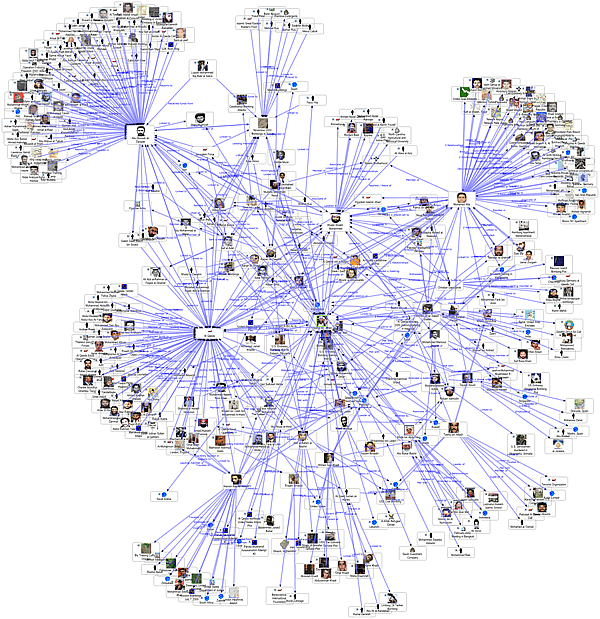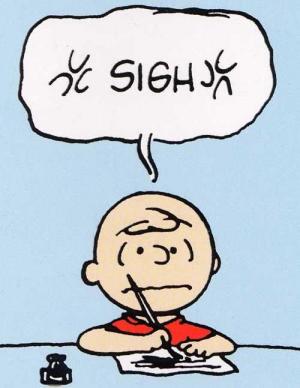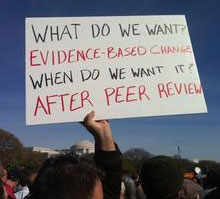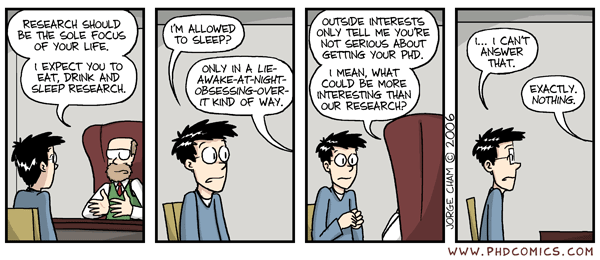So I'm working with an incredible woman who is an MS Office tutor. She knows Excel like she wrote it herself.
Over the past few weeks she's been compiling my sales data. ALL of my sales data.
For the very first time, I have total counts of all my sales from every platform. My legacy titles, Amazon published titles, and everything I have on KDP, Nook, Smashwords, Overdrive, Createspace, Kobo, Sony, and Apple.
And now I'm going to share those numbers with you.
These are based on my 8 legacy titles (the Jack Daniels books, Afraid, Timecaster) and my 40+ self-pubbed titles (which include 6 solo novels, 3 collaborative novels--Flee, Draculas, and Serial Killers Uncut, and the rest shorts and compilations and collaborations).
So what are these numbers? (For fun,
compare them to my numbers from 2009.)
EBOOKSSince 2004, I've sold 126,366 legacy ebooks, earning me $130,916 (prior to 15% to my agent.)
Since 2009, I've sold 632,501 self-pubbed ebooks, earning me $912,138. Some of that is shared with my collaborators, but not the lion's share by a longshot.
The majority of the money I've made on ebooks are on six of my novels, The List, Origin, Disturb, Shot of Tequila, Endurance, and Trapped. These six novels--all rejected by legacy publishers, have sold 362,783 copies, earning me $600,501.
I'm not at liberty to discuss the sales of my Amazon published books, Shaken and Stirred, because Amazon prefers I don't. But I'll say that I've sold more ebook copies of Shaken and Stirred in less than three years than my eight legacy titles of sold in ebooks in eight years.
PAPERMy eight legacy titles have sold 60,993 hardcovers, 190,213 paperbacks, and 9828 trade paper since 2004, earning me a total of $264,527.
I've used Createspace to make my self-pubbed books available in print. Since 2010 I've sold 12,711 self-pubbed paper books and made $37,519.
Again, can't talk about Shaken and Stirred. Shaken, released first, did pretty well in print, as this was when Borders and B&N carried copies. Now Borders is gone, and no brick and mortar bookstore will touch Amazon pubbed paper books, so Stirred didn't do as well.
TOTALSSince 2004, I've sold a combined ebook/paper total of 387,400 legacy books, earning $395,443, or $336,126 after my agent's commission. This includes all advances. That's $42,015 per year. Not bad, but anyone who is a longtime reader of this blog knows how much I busted my ass to sell that many, and how much I spent on promotion and travel. If I took home $30k any given year, I'd be very surprised. It was usually less than that.
Since 2009, I've sold a combined ebook.paper total of 645,212 self-pubbed legacy books, earning $949,657. That's $730,282 on my own, and another $109,687 for my share of my collaborations, for a total of $839,969. That's $210,000 a year, average.
Stirred has made a little more money than Shaken, due to Blake Crouch's brand, but I had to split that money with him. Again, I'm not disclosing how much I've made, but I've made more on Shaken than I have on any one of my legacy titles. This is the reason I continue to sign with Amazon publishing, and why at the end of this year I'll release three books with them, co-written with Ann Voss Peterson, Flee, Spree, and Three.
However...
Some of my self-pubbed novels have made more money than Shaken.
Now my calculations don't take certain things into account, including:
1. I don't have 2012 legacy sales figures yet, thanks to publishing's reporting system being back-asswards and archaic.
2. I'm counting 2012 as a full year, even though it is only September.
3. My averages aren't fully accurate. For my first year of legacy pubbing I only had one book out, and my first year of self-pubbing I had less than ten. Obviously I didn't sell many legacy ebooks before 2007, when the Kindle was invented.
4. The vast majority of my sales have been in the last 22 months, as ebooks have really taken off, so averaging out over four years isn't accurate. In 2011 and the first months of 2012 I've made $791k, or an average of $37,000 a month. To put this in perspective, I got a $33,000 advance for Whiskey Sour, and a $20k advance for Afraid.
5. My legacy paper sales have dwindled dramatically, partially because of bookstores closing, partly because bookstores hate me and won't carry me, partly because I haven't had a new legacy book in years. So again, averages aren't the best way to view the data.
Because this isn't a true science experiment with a control, any conclusions I draw will be speculative. But my data is solid, and I'm confident enough to make a few observations.
1. Ebooks are the future.I've been saying this for years, but my data bears it out. I'm betting, when I get my next legacy royalty statement, my ebooks will have outsold my mass market paperbacks. Paper sales are dwindling, ebooks are taking over, in a big way.
2. Amazon is the big dog.Not only is Amazon Publishing (Encore, Thomas & Mercer, etc.) a smart and lucrative way to diversify from self-pubbing, but Amazon is where most of the money is made.
I hear some of you asking: Joe, can you break down the numbers?
Absolutely. One of the wonderful things about my new spreadsheet is it uses pivot tables. In other words, I can sort my data however I wish. If I want to know how many $2.99 titles I sold on Nook in June 2011, I can sort it. If I want to know how many Kindle Owner Lends I've had, I can to it in a few clicks.
And yes, in an upcoming blog I will be interviewing the woman who did this for me. So if you're like me, and have too much data to compile into one spreadsheet, let alone analyze, you'll be able to hire her.
Let's look at my numbers broken down by platform:
Apple (via Smashwords) 6356 sold, $10,446 earned
Kobo (via Smashwords) 2229 sold, $3040 earned. But I recently signed on with Kobo directly, and in August 2012 made $1033. So Kobo is shaping up to be a player.
Sony (via Smashwords) 3882 sold, $6047 earned.
Nook (via Smashwords) 5769 sold, $7524 earned
Nook Pubit 16,727 sold $29,300 earned
Amazon KOLL 20,179 shared, $35,015 earned
According to my numbers, my Amazon titles have earned $885,452 and other platforms combined have earned just $64,204. Amazon is the clear winner by almost 14 to 1 against its competition.
But what interests me most is KOLL. I made $35,015 KOLL on select titles, for a three month period. I currently have a handful of titles in KOLL for another three months, but I'd opted out the majority of my work in order to make it available on other platforms.
Granted, the majority of my KOLL profits came around the holidays, and I had to opt out of the other platforms to do so. Perhaps I could have made good money on Apple and Nook during the holidays if I'd been live, but would it have been comparable to what I made via KOLL? It doesn't seem likely.
I've been urging Amazon at every opportunity to make KDP Select non-exclusive. I've also been urging them to sell epub format, something I've been urging since 2009.
Amazon still demands KDP Select be exclusive, and recently offered a 70% royalty in India for KDP Select titles. They seem to like the exclusivity of it, even though their customers get fewer titles, and Amazon scares away many authors from the Select program.
Kobo is on the rise. Nook seems to be holding steady. The same with Apple.
So what is an author to do? Pull all titles and go all-in with Amazon, to hopefully make more money? Or self-publish on multiple platforms, encouraging competition, and perhaps earning less?
I want to hear from writers on this issue. Do you go with Amazon Select or not, and why?
I'm going to remain on multiple platforms for the time being. But come the holidays, I'm not sure what I'll do. A lot of my KOLL earnings, and KDP earnings, were the result of the Select freebie program and resulting bounceback to the paid bestseller lists. But all signs point to the bounceback being not as effective as it once was. I want to hear from writers on this issue as well.
3. Amazon and Createspace have impressed me.I've made over $37k on my self pubbed paper books. Since 2010, that's $12,500 a year. My legacy books have averaged $33,065 a year.
In other words, even with major publishers behind me, four book tours where I went to 42 states, and signing at over 1200 bookstores, I only made $33k a year selling legacy-pubbed paper. Doing absolutely nothing, with a minimal investment per title (cover art, formatting) I'm making $12,500 a year selling self-pubbed paper.
Obviously, as with all of my numbers, your mileage may vary. But this shows me what an utter failure legacy publishers have been with me, and I bet my data can be extrapolated to dozens, if not hundreds, of other midlist authors. I may be among the better selling indie writers, but as more and more midlist authors leave legacy, more and more of them will have success that mirrors mine.
Paper isn't going away. But it isn't going to be the preferred method of reading in the future. For millions of people, it is already passe.
I just got a blurb request from a Big 6 author whose novel is being released ebook-only.
WTF?!? Publishers are actually signing authors and not even putting out a paper version? Why would any author take 14.9% of a legacy pubbed ebook that sells for $9.99 (hint: by "sells" I mean "won't sell") instead of 70% (or 80% via Kobo) of a self-pubbed ebook where they control the price and the rights?
Publishing can survive using this strategy, if authors are gullible enough to keep signing these one-sided contracts. Here's how.
On a $6.99 paperback, the author makes about 56 cents. That's close to what the publisher makes, after all expenses. While it is possible for publishers to get into the black before an author earns out her advance, earning out the advance is usually a good indicator the book is making money.
On a $6.99 legacy ebook, the author makes $1.04 after agent commission. The publisher makes $3.67. So let's play the advance game.
A publisher pays an author $20,000 advance. Author keeps $17,000 after the agent is paid. There is no paper version. The ebook, priced at $6.99, sells 12,000 ebooks in five years, which is what my legacy ebook Dirty Martini has sold.
The author would still owe $7520 on the advance before earning another nickel. In the meantime, the publisher has made $44,000. Minus the $20k advance, the publisher has pocketed $24,000, and still will make money for a few more years without paying the author any more.
If the author self-pubbed his own book at $6.99, and sold 12,000 copies, he would have made $58,880.
If publishers keep signing authors for ebook-only deals, at the current royalty rates, they'll get richer than they ever have, at the expense of authors. Authors will still be living advance to advance, never earning out, and publishers will be printing money by doing nothing more than providing cover art, proofreading, and editing services--all jobs that can be freelanced for fixed costs.
If you are thinking about signing an ebook-only deal with a publisher, crunch the numbers first.
CONCLUSIONAs I've said ad nauseum, ebooks are forever. And they are going global. We're going to be able to reach readers worldwide, with a combination of POD, ebook retailers, and libraries. But in order to exploit this market, we need to hold onto our rights and get the highest royalties possible.
As always, I encourage authors to figure out what they want out of their career, and set appropriate goals. Experiment, share your results with others, and keep trying new things. Before you sign any contract, understand what it means, what you're getting, and what you're giving up.
There are no sure things. I've never said there were. No path you take in publishing is a quick-rich scheme. Talent and hard work can help you get lucky, but it still all comes down to luck. Keep at it until luck strikes.
If you want to take a legacy deal, know what it means. I was recently talking with a peer--the first time we ever spoke--who has done just as well as I have with self-pubbing. She told me she was interested in pursuing a legacy contract, and I agreed that for her it made sense. She has a lot of titles, and this could be a chance for her to make a seven figure advance while still controlling the majority of her self-pub empire. She has nothing to lose by trying. But I do want to share part of our conversation, because I think it's telling.
Author: I was recently in a Barnes & Noble, my first time in years, and I saw huge display tables for EL James and Amanda Hocking. Legacy publishers really are good at getting the books they push onto the bookstore shelves.
Joe: For certain titles, yes they are. But how many customers in the bookstore did you see buying those books? How many customers were in the bookstore at all?
Ask yourself that. When was the last time you were in a bookstore? How many customers were there, buying books?
I've heard that 7 out of 10 books shipped get returned. I've seen bookstores close, and I've noticed space within the bookstores increasingly devoted to non-book items. And now publishers aren't even printing books anymore, they're signing ebook-only deals.
Tread lightly. There's a big difference between taking $1,000,000 because a publisher thinks you're the next James or Hocking, and taking $20,000 that you'll never earn out. If you're holding out for that million dollar deal without a track record to back it up, you might as well go buy a bunch of lottery tickets. And if you do have the track record to back it up, you have the power to negotiate a better deal, or to walk away and keep your rights.
A few weeks ago, I declared myself independent of legacy publishers. I'm reposting that here, for newbie authors to read, because whenever I post my numbers I get a whole bunch of new readers, and they need to see this.
The Declaration of Independence for WritersWhen in the Course of publishing events, it becomes necessary for writers to sever their ties with the industry that is supposed to have "nurtured" them, a decent respect to the opinions of mankind requires that we should declare the causes which impel those writers to the separation.
We hold these truths to be self-evident, that all writers should have an equal chance to find readers. That their successes or failures should be dependent upon their own actions and their own choices. That they should be paid fairly for their work. That they should have control over the works they produce. That they should have immediate and accurate access to their sales data. That they should be paid promptly. That they should not be restricted from reaching those who may enjoy their work. That whenever a publisher becomes destructive of these ends, it is the Right of Authors to abolish all connections with the offending parties.
The history of the legacy publishing industry is a history of repeated injuries and usurpations, all having in direct object the establishment of an absolute Tyranny over writers. To prove this, let Facts be submitted to a candid world.
They have given us take-it-or-leave-it, one-sided, unconscionable contracts.
They have failed to adequately market works they have acquired.
They have artificially inflated the price of ebooks.
They have refused to negotiate better ebook royalties for authors.
They have forced unnecessary editing changes on authors.
They have forced unnecessary title changes on authors.
They have forced crappy covers on authors.
They have refused to exploit rights they own.
They have refused to return rights they aren't properly exploiting.
They take far too long to bring acquired works to market.
They take far too long to pay writers advances and royalties.
Their royalty statements are opaque, out-of-date, and inaccurate.
They orphan authors.
They orphan books.
They refuse to treat authors as equals, let alone with a reasonable measure of fairness.
They make mistakes and take no responsibility for those mistakes.
For every hope they nurture, they unnecessarily neglect and destroy countless others.
They have made accessories of the authors' ostensible representative organization, the quisling Authors Guild, and are served, too, by the misleadingly named Association of Authors' Representatives.
They have failed to honor promises made.
They have failed to honor their own onerous contract terms.
They've failed the vast majority of authors, period.
This blog has documented nearly every stage of these Oppressions, and in many cases offered solutions to publishers, and has been answered with only silence and derision.
But that's okay. Because now authors have a choice.
I don't need legacy publishing, and I will never be taken advantage of again. I declare myself independent of the entire archaic, broken, corrupt system.
And I won't be the last to do so.



















